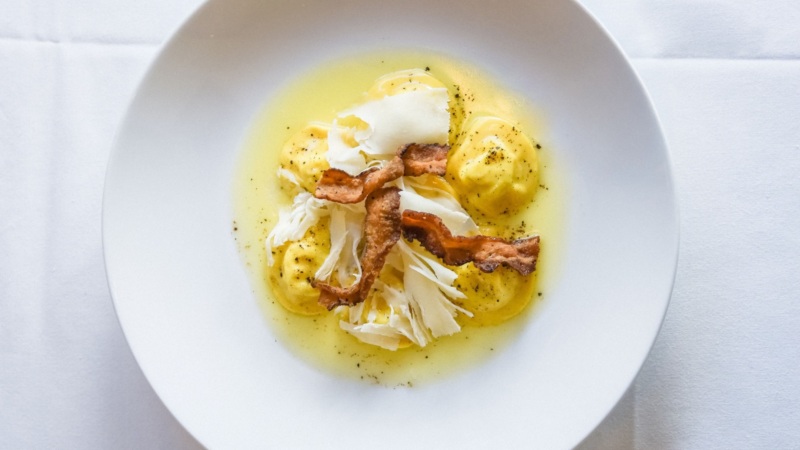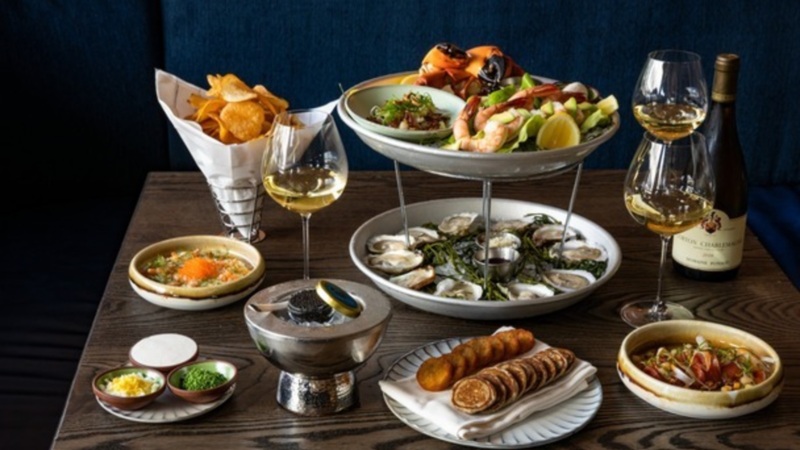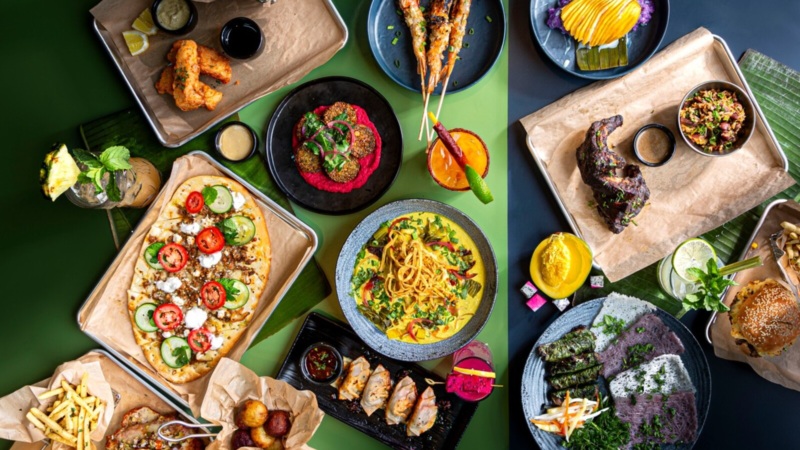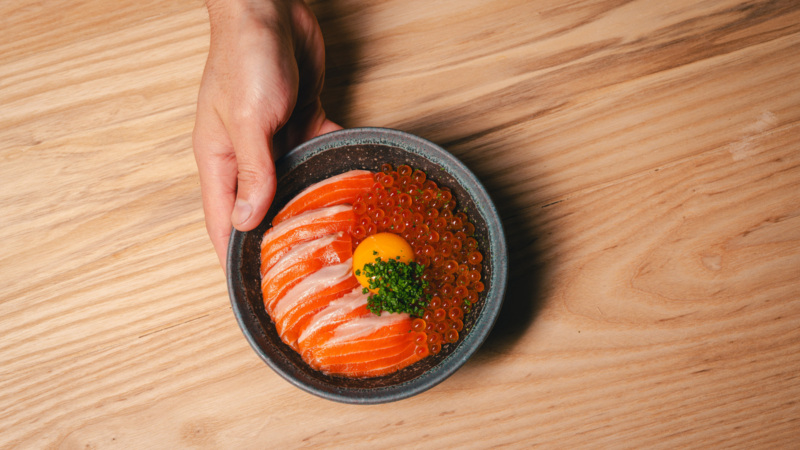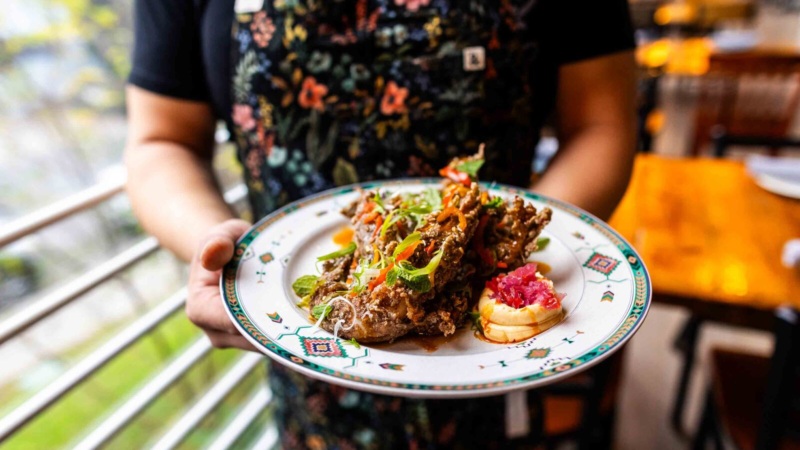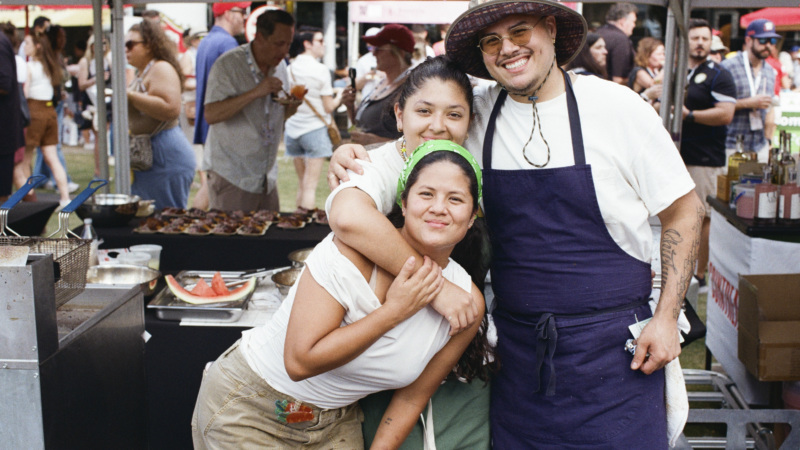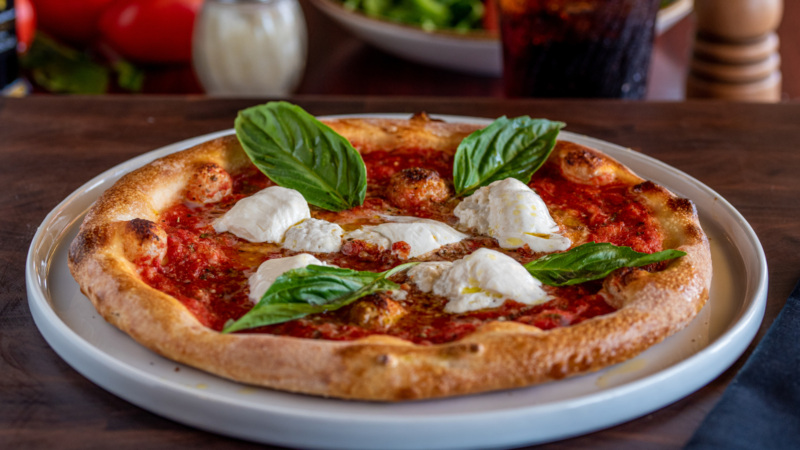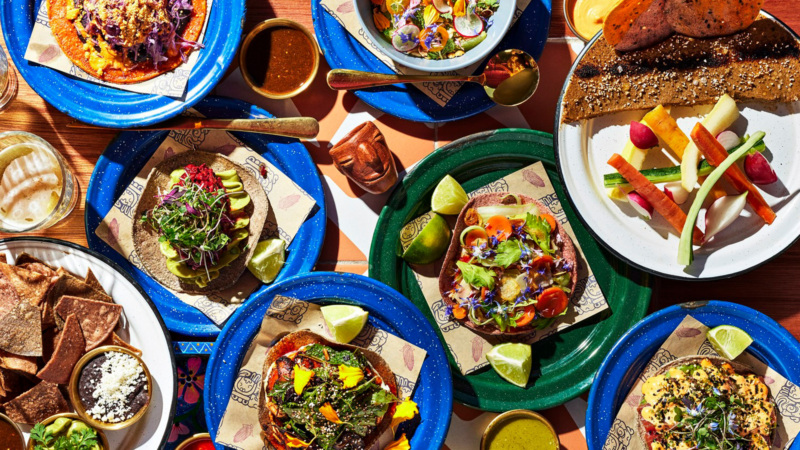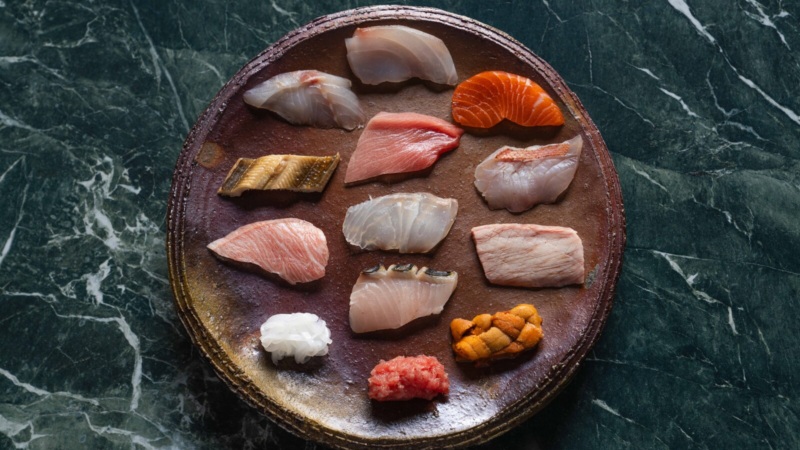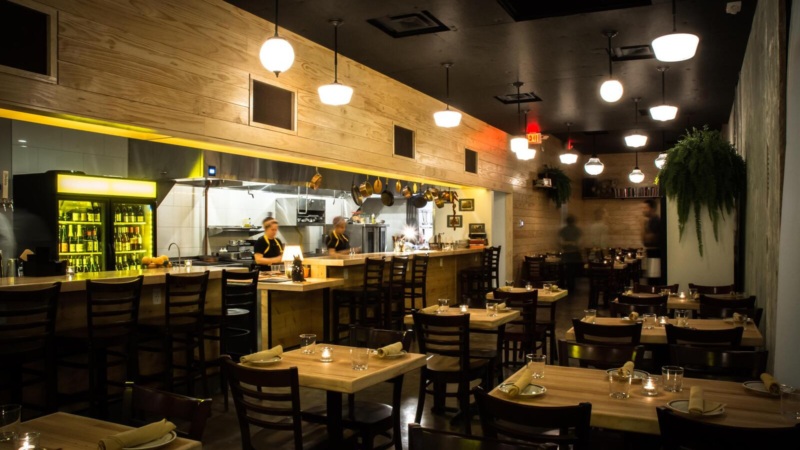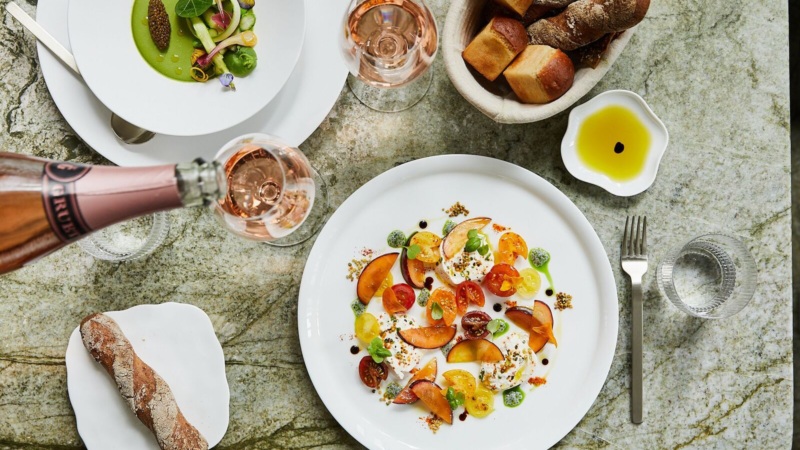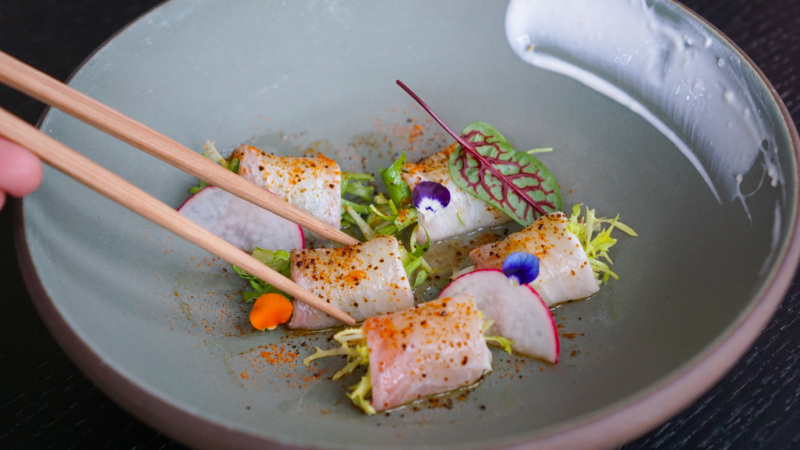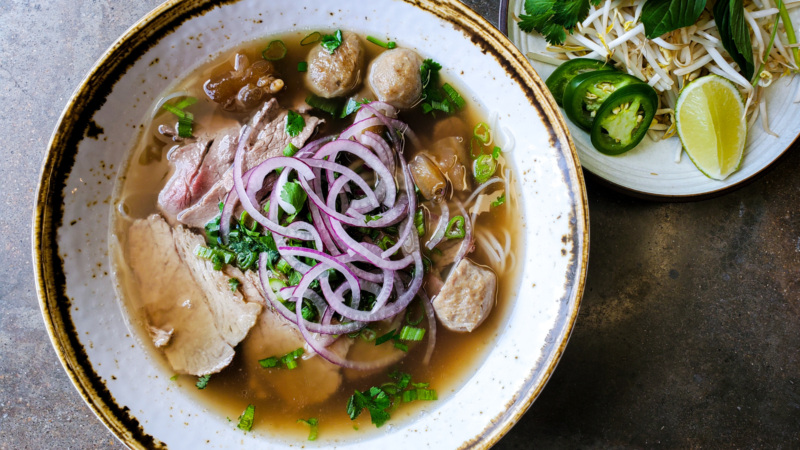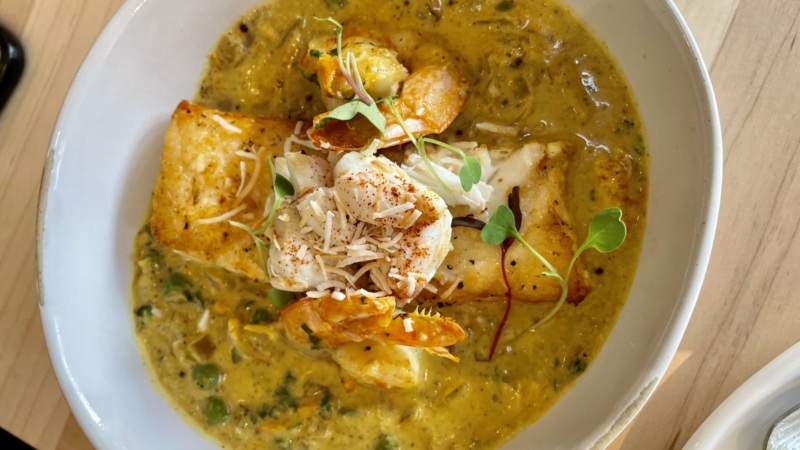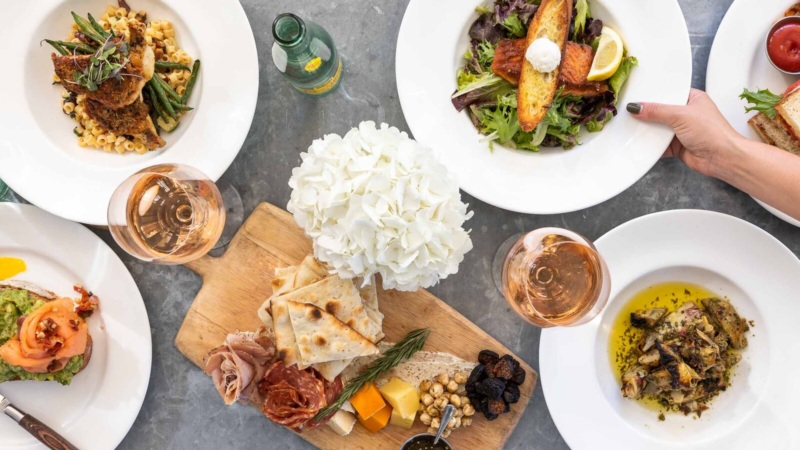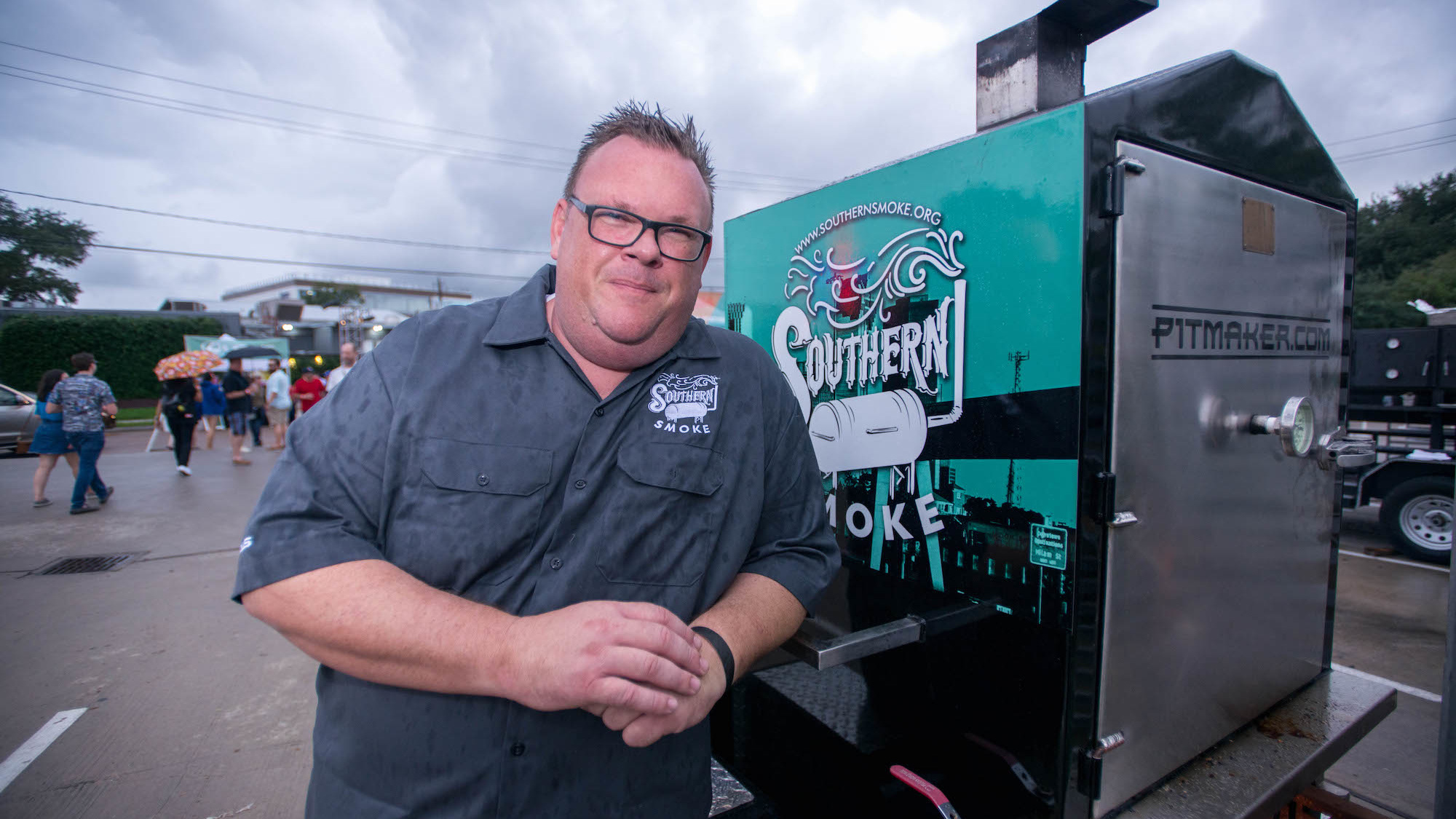
The Pandemic May Be Ending. But Chris Shepherd Is Just Starting to Make Restaurants Better.
Published:
Given the blur of energy that Chris Shepherd always is, you’d figure that even a pandemic wouldn’t slow him down. And you’d be right.
The chef that helped to put Houston into the national mix as a major food city had just ascended to that top tier of fame as COVID arrived in early 2020. He had closed Underbelly, his mainstay restaurant, two years earlier, while also opening three new restaurants: Georgia James, UB Preserv, and One Fifth — the last of which would hinge on shifting culinary themes, a more down-home iteration of the rotating inspirations at venues like Chicago’s Next.
Southern Smoke, the charity and food festival he founded with his now-wife Lindsey Brown, had become a vehicle not only for supporting the industry but also advancing Shepherd’s particular view of Southern food — that of a cuisine in frenetic transition thanks to recent generations of immigrants who had changed the composition of many cities in the South, Houston in particular.
If Southern Smoke had initially been created as a way to support the Texas branch of the Multiple Sclerosis Society, it had evolved during Houston’s previous crisis, the devastation of Hurricane Harvey in 2017, to support not just restaurant workers in need, but a broader swath of those with ties to the industry: farmers, delivery drivers, and so on. These exact same people were immediately impacted by COVID, which was why Southern Smoke suddenly found itself with thousands of relief applications. (To support the foundation, American Express and Resy are donating $500,000 as part of the Every Resy Counts campaign this month.)
Coming out of the worst of the pandemic, Shepherd’s empire looks a bit different: Nearly every existing restaurant changed locations, at least two (One Fifth and UB Preserv) shuttered for good, and the chef’s restaurant group, Underbelly Hospitality, just launched two new spots at the Houston Farmers Market: Wild Oats, a tribute to Texas cooking, and Underbelly Burger. Pastore, an Italian restaurant based on the final iteration of One Fifth, is due to open shortly.
But Shepherd is never far from his two core themes: one, elevating the cuisines all around him, not just by serving them but by shining light on immigrant cooks and restaurants, using his success to tell the broader story of Houston’s modern mosaic; and two, pushing the restaurant industry to better support its workers. Resy sat down with Shepherd to discuss how the past two years have transformed his business, and restaurants more broadly.
This interview has been lightly edited for length and clarity.
RESY: How are things going right now, coming out of the worst of COVID? How are your restaurants?
Chris Shepherd: Things are good. We made a lot of changes in the way that we do things, a lot of moves in real estate, shifting all the restaurants around. By the end of this, everybody in the company will have a brand new home.
And what about with Southern Smoke? Tell us a bit about your work there through COVID. Were people taking advantage of the emergency relief program?
In 2017, when Hurricane Harvey came through, we took in 200-some applications, like 230, and granted 139 families half a million dollars. And I said, we need to keep going with this, because we don’t have a safety net in our industry.
But those first few months of 2020, when COVID came through? We were at 35,000 applications. It went from literally nothing — we had our executive director Kathryn [Lott], and we hired a staff member to help out …
And then 35,000 applications?
Like, there’s two people in this office. Then all of a sudden everything flips out, and we have 40 employees. We hired waitstaff and cooks just to be case managers.
Now we’re at 16 full time employees. We had to start going through case management files. Like, how do we fund all these people? And it went from very local, to national. Real fast. And I think we granted almost $6 million in a year.
That helps to answer my next question. Not to talk finances, but what does $500,000 do, to help people at that national scale?
Since we started this, we’ve granted over $9.7 million. So what does a half a million dollars do? A lot. It helps a lot of people.
We may not always be dealing with COVID crises but we will be dealing with crises. I just saw on on Instagram just today that a chef in Boston, one of his staff’s house caught on fire. He lost everything. And I was like, just start here.
Whatever it may be, it’s there to give you a little help, a little hand. To be like, hey man, there’s somebody in the industry that will watch you, and help you through things. And if we can’t, we’ll send you the right ways.
People say, we’re coming out of COVID. But we’re not coming out of problems. Our industry is always in turmoil, in some aspect.
It sounds like the work has expanded, beyond just giving people cash.
We now provide free mental health care to anybody in the hospitality industry in the state of Texas — and their kids. And we’re growing that into Louisiana, into California. Our goal is, by 2027 or 2028, I want to have that across the country.
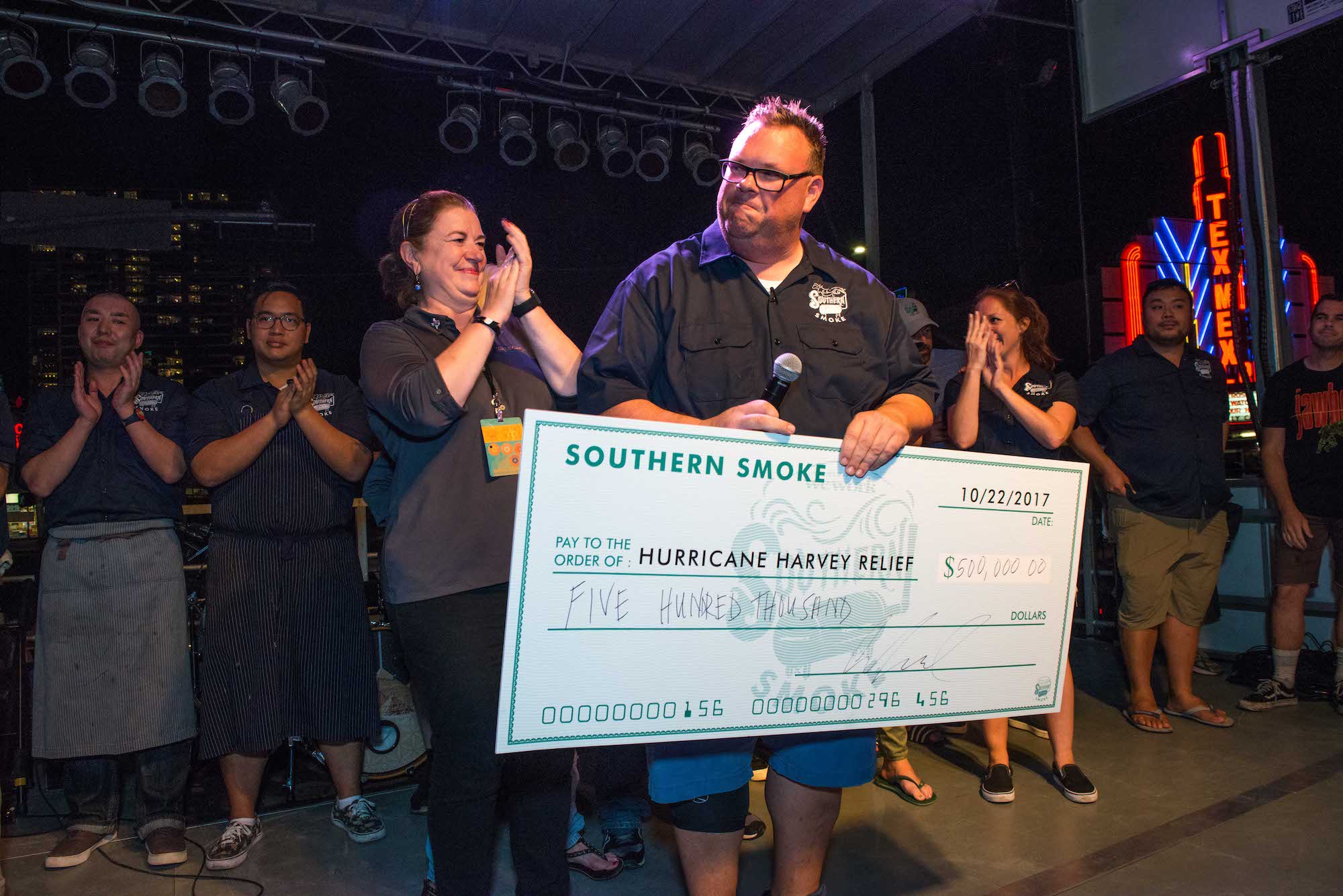
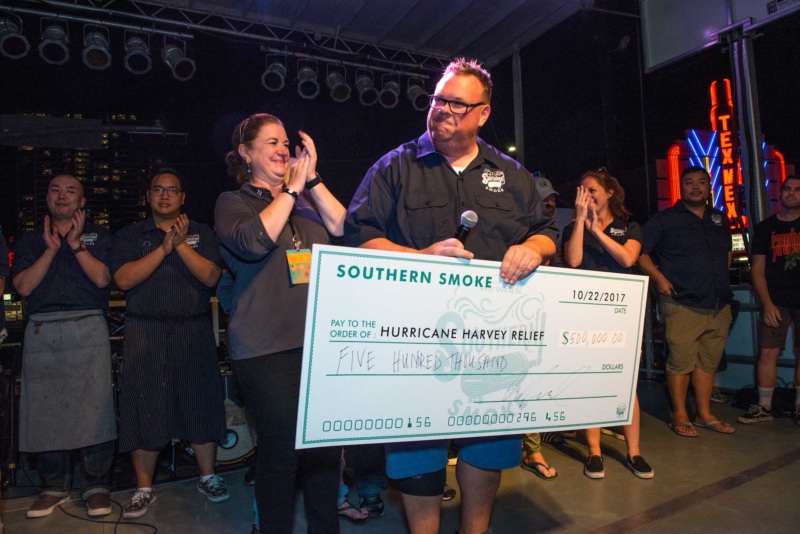
That brings up this ongoing, belated discussion the industry has been having — over how it functions, what shortfalls need to be addressed. There have never been safety nets. I know you were thinking about these things before the pandemic, but what has come into focus over the past couple years?
All of a sudden, insurance for cooks and waiters became important. You start talking about young cooks and they don’t … I mean, I can speak to myself, right? When I was a young cook, I didn’t think about insurance. But you need it.
Then, take a little time for yourself. You know? Clear your head, clear your mind. Days off are important. And maybe at night, go home and rest. Read. Do something else.
Every day, I talk to these guys about, this is what we do for a living. It’s not our lives, right? And that’s an important fact to remember. We get so caught up in the day to day, sometimes you need a little mental break. Go look at some water. We go out to the coast every once in a while — it’s an hour from here — and I sit and look at water for a bit. It clears my head. Go look at a pond. Take some time for you. Go out and eat. Do something for yourself. Make sure you’re going to the doctor. Get your checkups.
Also, crucially, have a way to afford those things. Which is what separates restaurant life here from restaurant life in so many other countries.
Yeah. And it comes down to employers. It comes down to people making good decisions, and understanding that we need to work on the industry itself.
What other things do you think the industry needs to tackle?
Affordable living, right? And making sure we’re paying enough.
And consumers need to understand, we’re in a time right now where inflation is a real thing. The supply chain is a real thing. That cost of living is going up. And we all have to accept that. And I hear it all the time: “You’re expensive.” Am I? Or am I just using the quality ingredients I was using before.
Then, also, it’s our responsibility to take care of our staff. So we now provide free health insurance to every full-time employee. We understand that inflation is coming. That we need to pay our people more, that prices are going to go up. Going out to eat shouldn’t be a cheap thing.
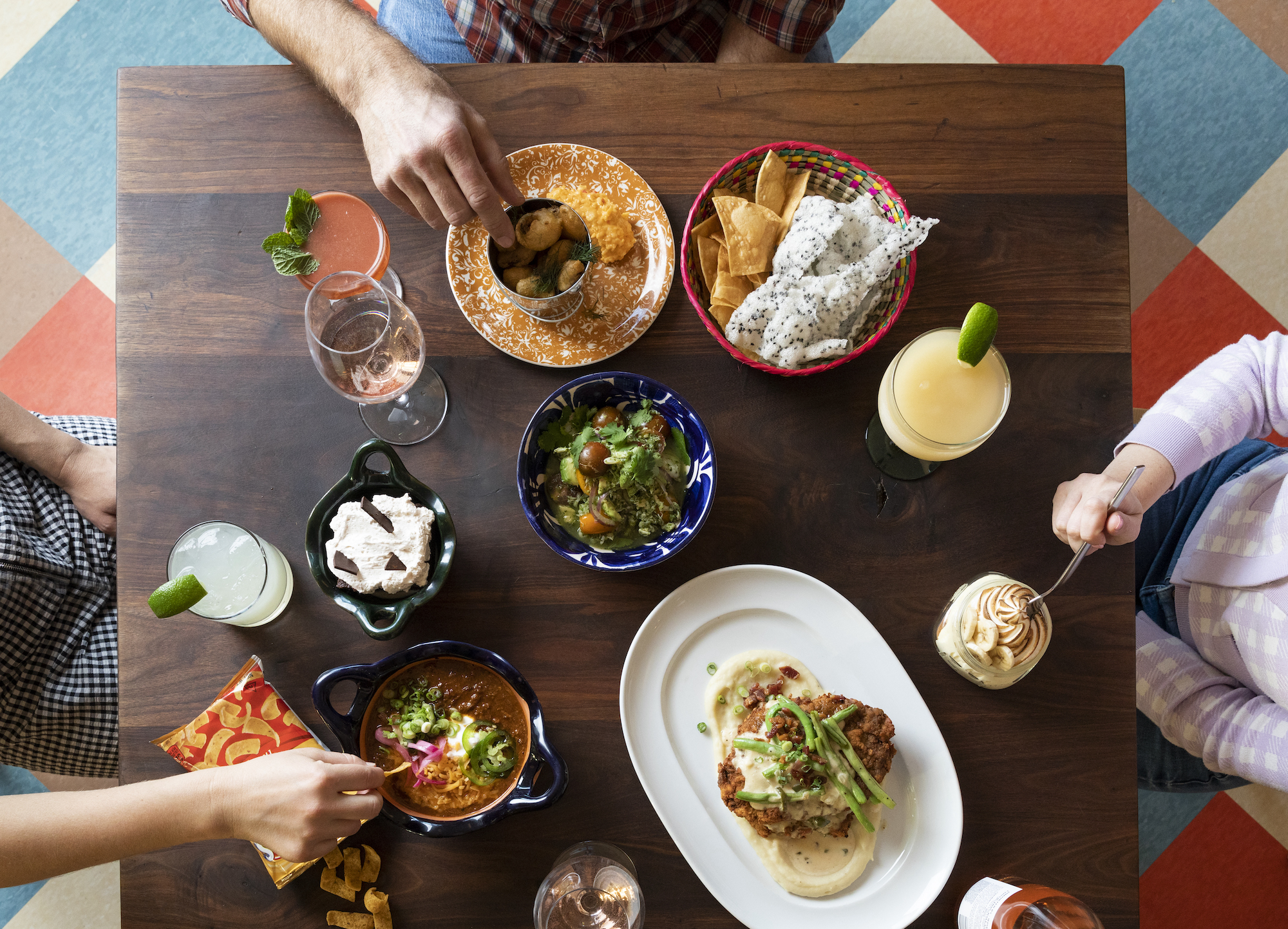
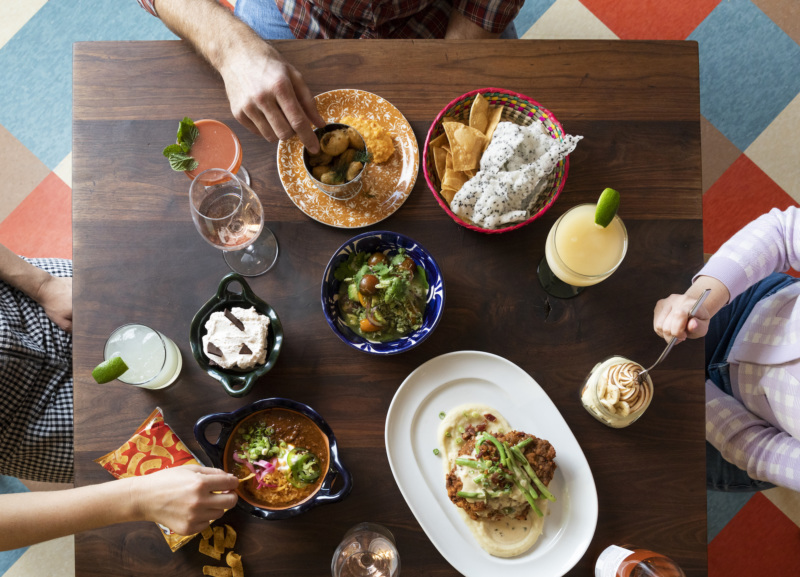
But this is every restaurateur’s fear, right? You have the chicken on the menu, pizza on the menu, steak on the menu. People get those prices baked into their head, and they expect it to stay that way.
And it’s not going to. Look at your gas tank. Look at your gallon of milk, Look when you go to the grocery store. Restaurants gotta do that too.
Sure. That was the scenario in, say, San Francisco amid the most recent boom. Suddenly cost of living in a city goes up by 20 percent, but people still expect a pork chop to be the $22 it always was.
Yeah, it’s $32 now. And that’s just how it has to be. Generationally, it has happened that way forever. If we were still paying a nickel for a gallon of milk, that’d be great. But we don’t.
What about minimum wage?
That’s for other people to decide. But we’re going to do our best to make sure our staff gets paid well. And that’s a conversation we have every day. How do we get our staff more money? That’s legitimately the conversation. There’s a meeting over here right now in the side room with all my GMs talking about that.
And tipping? Have you guys talked through the different ways that might work? This is one of those things people have been trying to solve for decades.
And when they solve it, let me know. [Laughs] We spend a lot of hours on it. Like, how does it work? How do you keep everybody happy?
When 2020 came through, my chefs and managers were like, we have a reset button that got hit, and we can figure this out now. I was like, if you can figure it out , then let’s talk about it. But you look at every restaurant that broke the mold, they went back to the mold.
I would love to just add a service fee. But then you’ve got to have every member of staff touch a table throughout an evening. The legalities behind it make it really hard.
Something else has been visible in the past couple years: How quickly dining is changing. Not just money, but also cuisines, and diversification, and different styles of eating. I’m thinking back to that New York Times headline from March 2020: “The Face of Houston’s Diverse Dining Scene Is a White Guy From Nebraska.” You’ve been contemplating changes like these, in a diverse city, for a long time. So where do you see American dining right now?
People are looking at dining a little bit differently, especially when we start talking about diversity in our city. That’s a beautiful thing that happens here. People are inquisitive, and want to go out and try things all the time.
Like, I love taking people down to Hai Cang, and getting live Dungeness crabs put on the table. They’re like, whoa, and I’m like, yeah, this is our city. Crawfish & Noodles. Let’s try this. Let’s go to London Sizzler. Let’s go to Himalaya. Understanding the cultures that are around you, that’s the best part. That’s how you start conversations, through food. You start to learn about people through that.
Is part of that being post fine-dining? Where people are more focused on finding things that are interesting to them than the old method of, put down a white tablecloth and soigné you all through the evening. Is there still a place for that?
I think people have realized they can do all of it. It doesn’t just have to be one or the other. You can go to a fancy steakhouse one night, and you can go to a pho joint in the morning. Especially after 2020. When people couldn’t go to all these [fancy] places, they tried new things. They learned how to cook, which kinda sucks … [laughs] … not really but …
People get tired of cooking pretty fast.
Yeah, they do. People that don’t cook for a living are like, this is hard work. I gotta go buy all this stuff?
But it’s good for them to have seen all these new things, looking up websites and trying new menus. Maybe you learn more about pho. Maybe you try it from four different places now. Maybe you try a new vindaloo. Maybe you try that from three different places. Maybe you find repertoires that make for a new, bold way of life. Although I don’t know how bold that is. It sounds like Tuesday to me.
I was just like, a steakhouse for dinner and pho for breakfast? That’s a lot of beef in 24 hours!
You can have chicken pho!
Not to put things too close to home, but what about something like the Georgia James baller board? Is there still a place for conspicuous consumption in the new normal?
It’s still there. We sell a lot of ‘em. People like it. “Here’s a trough — go!”
I think it’s awesome. You sit down with people and they see it coming and they’re just like, their eyes bulge out and man, when else are you going to do that? You’re not going to do that at your house.
You mentioned pho and vindaloo. Are there specific cuisines and influences you see coming forward? What do you see in the pipeline today?
In Houston specifically, we’re starting to see more western African food. Which is really cool. People are learning what suya spice is. And jollof. Hey, guess what, jollof has a kind of direct correlation to jambalaya. Once they start to realize that, it’s pretty nice.
And Thai food. When the Beard list [of nominees] came out and I saw Teton Thai up in Jackson Hole, I’m like, that is awesome, because that is one of the best Thai restaurants in the country. And it’s in the middle of the mountains. So I think we’re starting to see, diversity is coming through across the country.
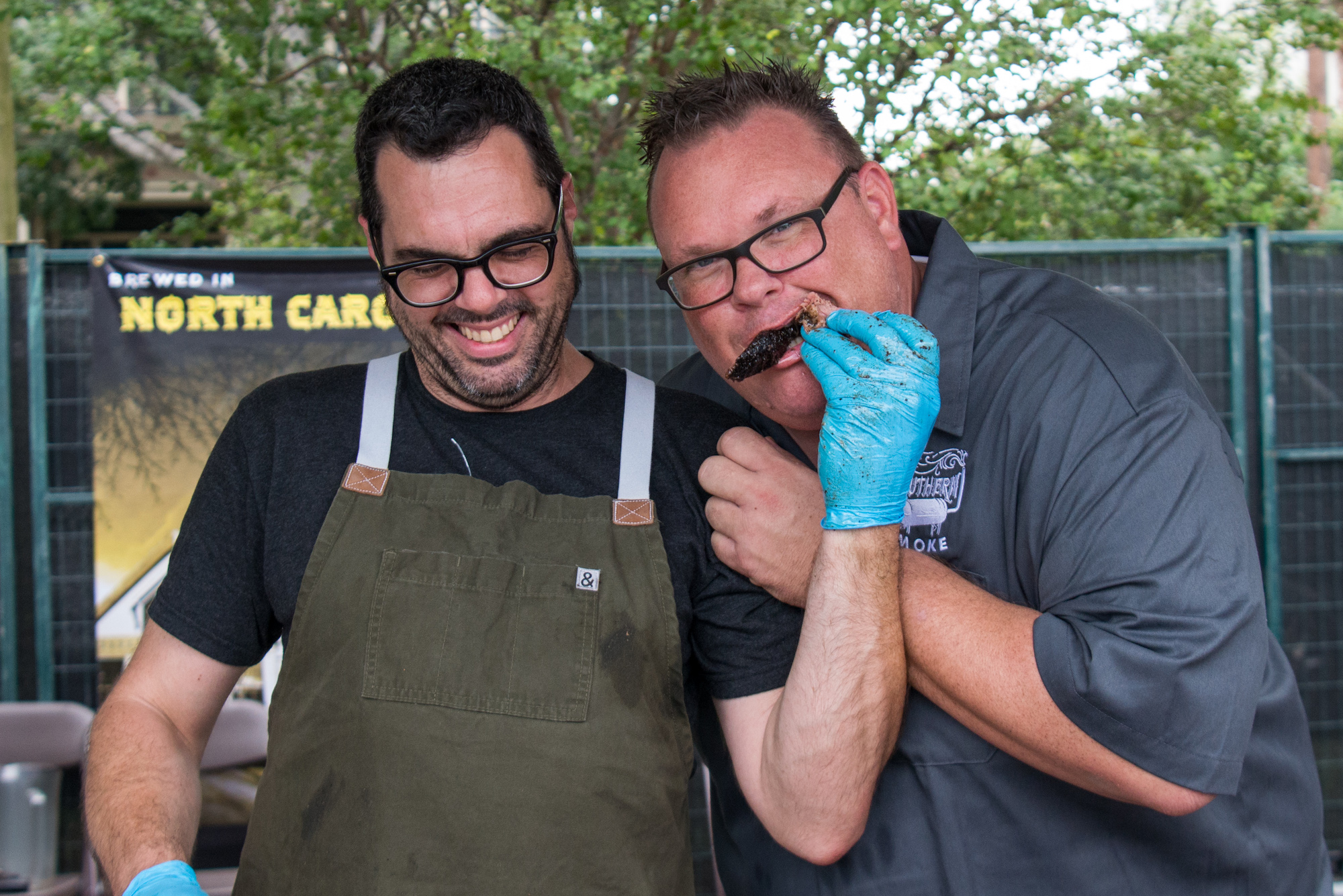
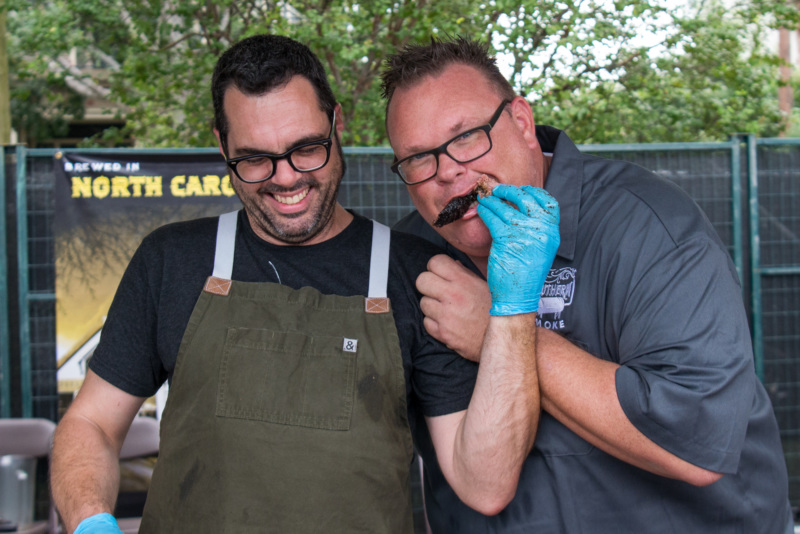
Back to the state of the business for a second. One other thing 2020 showed us was how fragile restaurants are. Do you see communities stepping up to support restaurants and restaurant workers? Do people understand now that if you don’t take care of these things, they won’t be there?
People saw that, right? It was clear as day. I think that at the very beginning of 2020 when COVID came through, people became really generous and very thoughtful.
But now people think restaurants are back up and running, and it’s super busy. It’s not that simple. Prices of everything have gone up. We’re still having to pay back all the things we took it on the chin for, for two years. I think that the consumer is a little bit more understanding, but not that much. The industry is starting to see the effect of the past two years. And that’s when companies like Amex and Resy step up huge to say, this has to change. We have to be there for the industry.
That’s one of the beautiful things we’re starting to see more of. We see how it got broken. Now, how do we fix it? Because we absolutely know this can happen again real quick. So how do you build an infrastructure around it? I think that’s where Southern Smoke has come in. To make sure that when there’s crisis that does happen, that there’s an infrastructure for people, and we can get it done quick.
My team doesn’t like to hear me say this, but my goal is to reach the point where we’re not needed.
I know for you, there’s a lot of importance in paying it forward. Not simply in terms of crisis relief, but also as a restaurateur who’s had a certain amount of success. I’m wondering, how do you navigate that? The notion of large-scale success for a chef is still a very recent thing, so shining light on smaller fish in the sea still seems rare in the industry. How do you help out small businesses around you?
There’s this little Ukrainian bakery in San Antonio that somebody posted about. They’re giving all their money back to the country. And I called and said, hey, can I just buy a bunch of stuff? And they’re like, well, you have to pick it up. So I say, how about I just buy a gift card and you swipe that gift card for however long, for the next 20 people that come in. It’s on me. And they’re like, seriously? And I’m like, yeah. Or just take the money.
So it’s about paying forward in little things, supporting smaller companies. Taking care of things that people may see as trivial. Making sure we all just step up. It doesn’t take that much time or effort to make a phone call or go by, or make a reservation. Whatever it may be. It’s about, as a community, when somebody does something you can feel as support. That bakery has no idea who I am. It doesn’t matter. It’s what was right. It’s about giving somebody the feeling that they’re justified in what they’re doing. You can do that in your community. It starts there.
You mentioned a lot of changes with your restaurants. I was glad to see that One Fifth Red Sauce is evolving into Pastore. But I’m curious, when you were doing Red Sauce, was that just a comfort-food moment for the pandemic? It seems everyone is having a red-sauce kick right now.
I noticed that too. We needed to go through the last 6 or 7 months of One Fifth. And it was like, you know, let’s do something fun, something kind of outlying. And it was the one thing we hadn’t done yet. We’d never cooked a pizza out of that oven in the five years we’d been in that building.
Then I was like, I really like this. We brought in a chef, Chris Davies, who was at Uchi for five years. He started to look at it a bit differently. Instead of saying, hey, let’s red sauce it out, we thought, let’s look at populations of Italian immigrants that settled in different parts of the country, and focus on that. Like cioppino, you’re not getting that on the East Coast. So let’s look at all of the little pockets of cultures, and see how the food is derived — and look at it through a Houston lens.
And is there a subset of Italian cooking that feels Houstonian?
You start to talk about the migration into Louisiana, and specifically into Lafayette and Baton Rouge, and then into Houston. You can look at the Carrabba family or the Mandola family, and see where that flourished. I actually talked to Johnny [Carrabba] today and I was like, “Hey, can I set up a meeting with you and some of my team just to talk about, what was it like growing up? What was going to your grandma’s house like? What did that food represent to you?” That’s where we want to start.
What else is changing?
We just got Wild Oats open. Underbelly Burger is open. That’s doing great. We’re moving Georgia James, and then Pastore is opening up. And we’ve got Georgia James Tavern downtown. Everything is plugging along.
I saw photos of the food at Wild Oats, like the chicken fried steak. It made me really hungry.
It’s Texas, but it’s not cliché, and it’s not kitschy. I tell people it’s everything you thought you needed to have in Texas. Or have had. Just done better.
The grill that Aaron Franklin built us is one of the best things I’ve ever cooked on. He came in the other night to have some food off it and he’s like, that’s really good. And I was like, “You did that, man. I know it’s a one-off but maybe you should get in this business.”
And he’s like, “Nope. We sell smokers. I’m not building any of these.” But it’s 3,700 pounds of happy.
Jon Bonné is Resy’s managing editor. Follow him on Instagram and Twitter. Follow Resy, too.
